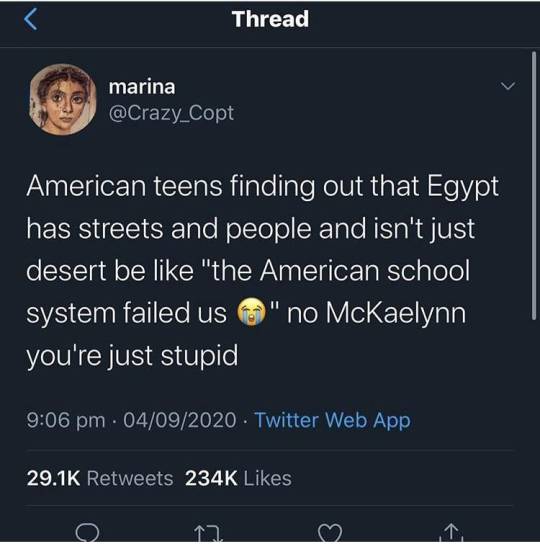#Exported Coffee
Explore tagged Tumblr posts
Text
Indulge in Pure Luxury: NESCAFÉ Gold Cappuccino by MG India Export.

When it comes to coffee, few brands are as iconic and beloved as NESCAFÉ. Their commitment to quality and innovation has made them a household name worldwide. One of their premium offerings, NESCAFÉ Gold Cappuccino, is gaining international recognition, thanks to the efforts of MG Export Company, which exports this exquisite product to coffee enthusiasts in Dubai, Australia, and New Zealand. Let's dive into the world of NESCAFÉ Gold Cappuccino and discover why it's capturing the hearts of coffee lovers in these far-flung destinations.
A Rich History of Excellence.
NESCAFÉ, a brand synonymous with coffee, has a history dating back to 1938 when it was first introduced by Nestlé. Over the years, NESCAFÉ has consistently pushed the boundaries of coffee innovation. NESCAFÉ Gold, in particular, represents the pinnacle of their craft, offering an unparalleled coffee experience.
NESCAFÉ Gold Cappuccino: A Taste of Luxury
NESCAFÉ Gold Cappuccino is a testament to the brand's dedication to quality. It combines the rich, aromatic flavors of coffee with a creamy and indulgent cappuccino froth. The blend is carefully crafted using high-quality Arabica and Robusta coffee beans, roasted to perfection to extract the fullest flavor.
What sets NESCAFÉ Gold Cappuccino apart is its convenience. With just a cup, hot water, and a sachet of this premium instant coffee, you can enjoy a café-style cappuccino without the need for an expensive coffee machine. It's the perfect choice for those who crave a luxurious coffee experience but are short on time.
Why NESCAFÉ Gold Cappuccino?
Uncompromising Quality: NESCAFÉ Gold Cappuccino is known for its consistent, high-quality taste, whether you're sipping it in Dubai, Australia, or New Zealand.
Convenience: It offers the convenience of a café-style cappuccino at home or on the go, without the need for any special equipment.
Aromatic Bliss: The rich aroma and smooth texture make every sip a delight for your senses.
Internationally Recognized: NESCAFÉ is a trusted name globally, and NESCAFÉ Gold Cappuccino lives up to that reputation.
MG INDIA Export Company: Bringing the World Closer to NESCAFÉ Gold Cappuccino
The MG INDIA Export Company plays a pivotal role in ensuring that coffee lovers in Dubai, Australia, and New Zealand have access to NESCAFÉ Gold Cappuccino. As an exporter, they bridge the gap between the production facility and international markets, ensuring that this exquisite product reaches consumers' hands in its pristine condition.
For more information visit → https://mgindiaexport.com/
#NESCAFÉ#NESCAFÉ Gold Cappuccino#MG Export Company#Coffee#Dubai#Australia#New Zealand#Luxury#Quality#Aroma#Convenience#Exported Coffee#Premium Coffee#Café Experience#Instant Coffee#Coffee Enthusiasts#International Coffee#Coffee Innovation#Coffee Brand#Coffee Excellence#Nestlé#Rich History#Coffee Beans
0 notes
Text

They like to go out for tea together, shes in for the pastries while hes there for the nice tea brews
#sometimes coffee too!#i like to think coffee is more rare in yharnam bc its export material#so they usually go out for tea#they are in their sunday best here#roms brooch was a gift from him ehe#SORRY I LOVE THEEEMMMMM#art#bloodborne#bloodborne fanart#micorom#bloodborne micolash#bloodborne rom#micolash host of the nightmare#rom the vacuous spider
63 notes
·
View notes
Text
[T]he Dutch Republic, like its successor the Kingdom of the Netherlands, [...] throughout the early modern period had an advanced maritime [trading, exports] and (financial) service [banking, insurance] sector. Moreover, Dutch involvement in Atlantic slavery stretched over two and a half centuries. [...] Carefully estimating the scope of all the activities involved in moving, processing and retailing the goods derived from the forced labour performed by the enslaved in the Atlantic world [...] [shows] more clearly in what ways the gains from slavery percolated through the Dutch economy. [...] [This web] connected them [...] to the enslaved in Suriname and other Dutch colonies, as well as in non-Dutch colonies such as Saint Domingue [Haiti], which was one of the main suppliers of slave-produced goods to the Dutch economy until the enslaved revolted in 1791 and brought an end to the trade. [...] A significant part of the eighteenth-century Dutch elite was actively engaged in financing, insuring, organising and enabling the slave system, and drew much wealth from it. [...] [A] staggering 19% (expressed in value) of the Dutch Republic's trade in 1770 consisted of Atlantic slave-produced goods such as sugar, coffee, or indigo [...].
---
One point that deserves considerable emphasis is that [this slave-based Dutch wealth] [...] did not just depend on the increasing output of the Dutch Atlantic slave colonies. By 1770, the Dutch imported over fl.8 million worth of sugar and coffee from French ports. [...] [T]hese [...] routes successfully linked the Dutch trade sector to the massive expansion of slavery in Saint Domingue [the French colony of Haiti], which continued until the early 1790s when the revolution of the enslaved on the French part of that island ended slavery.
Before that time, Dutch sugar mills processed tens of millions of pounds of sugar from the French Caribbean, which were then exported over the Rhine and through the Sound to the German and Eastern European ‘slavery hinterlands’.
---
Coffee and indigo flowed through the Dutch Republic via the same trans-imperial routes, while the Dutch also imported tobacco produced by slaves in the British colonies, [and] gold and tobacco produced [by slaves] in Brazil [...]. The value of all the different components of slave-based trade combined amounted to a sum of fl.57.3 million, more than 23% of all the Dutch trade in 1770. [...] However, trade statistics alone cannot answer the question about the weight of this sector within the economy. [...] 1770 was a peak year for the issuing of new plantation loans [...] [T]he main processing industry that was fully based on slave-produced goods was the Holland-based sugar industry [...]. It has been estimated that in 1770 Amsterdam alone housed 110 refineries, out of a total of 150 refineries in the province of Holland. These processed approximately 50 million pounds of raw sugar per year, employing over 4,000 workers. [...] [I]n the four decades from 1738 to 1779, the slave-based contribution to GDP alone grew by fl.20.5 million, thus contributing almost 40% of all growth generated in the economy of Holland in this period. [...]
---
These [slave-based Dutch commodity] chains ran from [the plantation itself, through maritime trade, through commodity processing sites like sugar refineries, through export of these goods] [...] and from there to European metropoles and hinterlands that in the eighteenth century became mass consumers of slave-produced goods such as sugar and coffee. These chains tied the Dutch economy to slave-based production in Suriname and other Dutch colonies, but also to the plantation complexes of other European powers, most crucially the French in Saint Domingue [Haiti], as the Dutch became major importers and processers of French coffee and sugar that they then redistributed to Northern and Central Europe. [...]
The explosive growth of production on slave plantations in the Dutch Guianas, combined with the international boom in coffee and sugar consumption, ensured that consistently high proportions (19% in 1770) of commodities entering and exiting Dutch harbors were produced on Atlantic slave plantations. [...] The Dutch economy profited from this Atlantic boom both as direct supplier of slave-produced goods [from slave plantations in the Dutch Guianas, from Dutch processing of sugar from slave plantations in French Haiti] and as intermediary [physically exporting sugar and coffee] between the Atlantic slave complexes of other European powers and the Northern and Central European hinterland.
---
Text above by: Pepijn Brandon and Ulbe Bosma. "Slavery and the Dutch economy, 1750-1800". Slavery & Abolition Volume 42, Issue 1. 2021. [Text within brackets added by me for clarity. Bold emphasis and some paragraph breaks/contractions added by me. Presented here for commentary, teaching, criticism purposes.]
#abolition#these authors lead by pointing out there is general lack of discussion on which metrics or data to use to demonstrate#extent of slaverys contribution to dutch metropolitan wealth when compared to extensive research#on how british slavery profits established infrastructure textiles banking and industrialisation at home domestically in england#so that rather than only considering direct blatant dutch slavery in guiana caribbean etc must also look at metropolitan business in europe#in this same issue another similar article looks at specifically dutch exporting of slave based coffee#and the previously unheralded importance of the dutch export businesses to establishing coffee mass consumption in europe#via shipment to germany#which ties the expansion of french haiti slavery to dutch businesses acting as intermediary by popularizing coffee in europe#which invokes the concept mentioned here as slavery hinterlands#and this just atlantic lets not forget dutch wealth from east india company and cinnamon and srilanka etc#and then in following decades the immense dutch wealth and power in java#tidalectics#caribbean#archipelagic thinking#carceral geography#ecologies#intimacies of four continents#indigenous#sacrifice zones#slavery hinterlands#european coffee#indigenous pedagogies#black methodologies
26 notes
·
View notes
Text
happy monday everyone! im 1 single inconvenience away from a complete and total crashout! :)
#moony bun hours#tried calling ss early this morning#all of our representatives are busy: goodbye#like okay cool#tried doing the computer stuff to update os on mac that i was trying all yesterday to do#didn't work#okay cool#tried exporting my csv file all morning to storygraph#doesn't work#okay! cool! :)#makes coffee and puts a bit of expired chunky creamer in there contaminating my whole bottle wasting the instant coffee and water#.................okay! great!#add onto the fact my dog pissed in the hallway of our building to idk assert dominance over the other excitable dog?????#idk why but either way had to clean it up#plus mom made some comments about cleaning last night and how tired she is and etc#meanwhile ive gone to work for like 4 days straight for almost 5/6 hrs with little to no food and yeah i don't do much of anything#but its still tiring and idk man#then my wigs not working with me#and i have 2 papers due today im just#so tired and stressed and feeling angry and frustrated
2 notes
·
View notes
Text

bring this back
#us politics#context: 25% ‘emergency tariff’ on goods exported from columbia announced by trump#i.e. coffee more expensive
4 notes
·
View notes
Text

Tea and coffee are two of the most popular beverages. Both of these are known for their rich and bold taste, which makes them ideal for all age groups. Treasure Orbit Group is a trusted tea & coffee supplier worldwide. We have a dedicated online platform where you can simply order top tea and coffee products from top brands. We operate with many local global companies and distribute their FMCG products efficiently. As one of the best tea & coffee distributors, we have built a strong image unforgettable connections with lasting impact in the market as a top distributor.
#Tea & Coffee Supplier#Tea & Coffee Distributor#Tea & Coffee Wholesaler#Best Tea & Coffee Supplier#Tea & Coffee Exporter
2 notes
·
View notes
Text
aghh everything is so discouraging againn. too many tasks i dont want to get up out of bed because then i have to do tasks and its cold and ugh
#color comic make comic ready for export. send finished files of comic. send email (3!!!) eat ???? brush teeth#get dressed also i dont really have breakfast#i can get breakfast and coffee but id hVe to walk further or get cheap breakfast and no coffee whcih is close but#FUCK one of the emails is also compiling names and like what my work is about and i have to actually think about it#might die right now#im fucked
2 notes
·
View notes
Text
not to ruin the fun by being a Brazilian but those tags are not that funny when you are precisely from "some third world country in the rainforest" you are being as ignorant as the guy in the story if you think we only have tribes and forests here, congrats 🙃🙃🙃

#usamericans and europeans stop making the global south the butt of your jokes challenge#why do you think we are “third world” in the first place btw? portugal colonized and pillaged us for hundreds of years#our wealth and gold is still in their hands#we have natives here of course - the ones the portuguese didn't manage to anihillate despite trying really hard#but to assume we're some backwater nation when our grains and exports keep your economy running. the coffee in your starbucks was grown her#sit down
111K notes
·
View notes
Video
youtube
OS MAIORES EXPORTADORES DE CAFÉ DO MUNDO
0 notes
Text
Coffee export by Country in 2023 ☕️💸

0 notes
Text

☕️ Curious about the world's coffee giants? Discover the Top 10 Coffee Producing Countries and dive into the global coffee export data! 🌍📊 From Brazil to Vietnam, see who leads the coffee market.
Read more here: https://www.tradeimex.in/blogs/top-10-coffee-producing-countries-global-export-data
0 notes
Text
With Sorbchem India Oxygen Absorbers Slow Down The Oxidation Of Tea & Coffee Beans Packaging

Keep Your Coffee & Tea Fresh in Bulk Storage! Oxysorb oxygen absorbers prevent oxidation, locking in rich flavor and aroma for longer. Ideal for bulk coffee roasters, tea suppliers, and long-term storage. No more stale brews—just fresh, high-quality coffee and tea every time. Extend shelf life, reduce waste, and preserve premium taste! OxySorb Now available on Amazon!
#oxygenabsorbers#tea#coffee#Bulk Storage#Extend shelf life#tea suppliers#food storage#food#packaging#exporter#manufacturer
1 note
·
View note
Text
After forcing Colombia to back down, White House claims America is respected again
READ MORE
#columbia tariffs#fafo#trump colombia#gustavo petro#colombian president#colombia tariffs#columbia president#trump columbia#tariff#colombia deportation flights#columbia trump#columbia country#colombia news#what does the us import from colombia#fafo meaning trump#trump fafo#colombia president#fox#petro#trump and colombia#coffee#truth social#colombia trump#tariffs#us fly#colombian presidential plane#columbia news#what are tariffs#petro colombia#colombia exports to us
1 note
·
View note
Text
Explore India's thriving coffee export journey, including market trends, HSN codes, top exporters, and global trade data. Discover why India is a rising global coffee powerhouse.
#coffee export from india#coffee export data#coffee hsn code#coffee exporters in india#coffee exporting countries#coffee export data from india#coffee beans exporters in india
0 notes
Text

Explore the comprehensive coffee export data from India, including market trends, HSN codes, top exporters, and global trade insights. Learn how India is becoming a coffee export powerhouse and discover the top importing countries and strategies for successful coffee export.
#coffee export from india#coffee export data#coffee hsn code#export of coffee from india#export coffee from india#coffee exporters
0 notes
